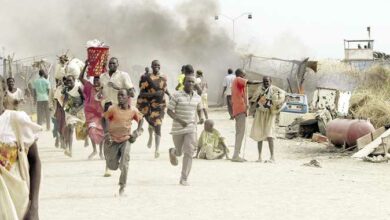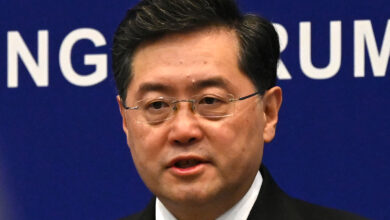
The United Nations Security Council appears set to ban all trade in antiquities from war-torn Syria, threaten sanctions on anyone buying oil from Islamic State and al Qaeda-linked Nusra Front militants and condemn paying kidnap ransoms to the groups.
The United States worked with its veto-wielding counterparts on the council – Russia,China, Britain and France – to draft a resolution that was to be circulated to the remaining members of the 15-nation council on Friday, a US official said.
Russia initially suggested the council ratchet up pressure on Islamic State, also known by one acronym as ISIL, diplomats said.
"We're relatively bullish, we think that it is going to enjoy the support of the council," said a US official familiar with the discussions on the resolution, which he said aimed to "degrade ISIL's ability to raise funds, to move funds."
The official added that it was hoped the council could vote as soon as next week. The draft text, obtained by Reuters, seeks to build on previous resolutions on terrorism financing.
It would ban all trade in antiquities from Syria and reaffirms a similar ban imposed by the council on Iraqi artifacts about a decade ago.
The draft expresses concern that Islamic State, al Qaeda-linked Nusra Front and other groups are generating income from the illicit antiquities trade "which is being used to support their recruitment efforts and strengthen their operational capability to organize and carry out terrorist attacks."
The resolution is under Chapter 7 of the UN Charter, which makes it legally binding and gives the council authority to enforce decisions with economic sanctions or force. However, it does not authorize using military force.
According to a UN report in November, Islamic State has been plundering antiquities in Syria and Iraq and there was also evidence that the group encourages the looting and subsequent smuggling of antiquities, and then taxes the looters. But it said it was very difficult to estimate how much money was generated.
It also said Islamic State raises several million dollars a month from illegal taxation and approximately US$96,000 to $123,000 per day from ransom payments, while estimated revenue from crude oil ranged between $846,000 to $1.6 million a day.
However, the Pentagon has said it assessed that oil was no longer the main source of revenue for Islamic State. Western diplomats, speaking on condition of anonymity, have said this was due to air strikes on oil installations and a plunge in oil prices that has affected black market prices as well.
The draft resolution calls on states to consider appropriate measures to prevent the smuggling of weapons, in particular portable surface-to-air missiles, to Islamic State, Nusra Front and other al Qaeda-linked groups.
The council would also push states to take steps to stop the use of aircraft, cars and trucks to smuggle oil, precious metals, grain, livestock, electronics, and cigarettes for international sale or to barter for weapons.
The draft resolution requires states to report back in 90 days on measures they have taken to comply with the resolution.
(Clarifies in first paragraph that resolution would condemn ransom payments, not threaten sanctions for such payments)




